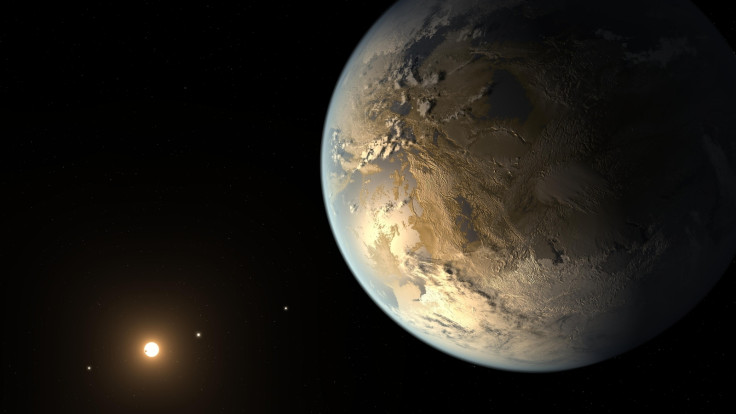Scientists discover alien planet that could be habitable
K2-18b is thought to host conditions that are suitable for life sustenance.
Scientists have discovered a planet that they believe could possibly be habitable and host life. A team of researchers and scientists from the University of Cambridge have made this breakthrough discovery and named the exoplanet K2-18b. It is thought to be a gateway to the decades-old research for alien life on other planets.
According to Independent, the astronomers studied the "mass, radius, and atmospheric data" of the exoplanet. Using the models, they discovered that there could be water, the key source to life, in habitable conditions of the planet or underneath the hydrogen-rich atmosphere on its surface.
The said planet is relatively closer than many other exoplanets that were discovered by scientists in the past. It is located about 124 lightyears away. What makes the experts think that the planet may be suitable to host life? Well, it is said to be closer as well as similar to Earth with a radius 2.6 times as big as Earth's and a mass 8.6 times that of Earth's.
Astronomy enthusiasts might be familiar with this name, K2-18b because it made headlines when it was first discovered in 2017. Following which, in the year 2019, scientists discovered water in the planet's atmosphere. The finding was confirmed by two different studies by researchers at Université de Montréal and University College London (UCL) using the data of Hubble Space Telescope. However, the habitability of the planet was still a question back then.
"Water vapour has been detected in the atmospheres of a number of exoplanets but, even if the planet is in the habitable zone, that doesn't necessarily mean there are habitable conditions on the surface," said astronomer Nikku Madhusudhan of Cambridge University, the lead author of the study in a statement.
"To establish the prospects for habitability, it is important to obtain a unified understanding of the interior and atmospheric conditions on the planet — in particular, whether liquid water can exist beneath the atmosphere," he added.

The researchers studied the presence of the hydrogen layer which is essential to support life. It was confirmed that the atmosphere is "hydrogen-rich" with enough water vapour. They were also able to learn about the levels of other chemicals such as methane and ammonia, which is lower than expected. However, it is certain how levels can impact biological evolution. The study was published in The Astrophysical Journal Letters.
© Copyright IBTimes 2025. All rights reserved.





















